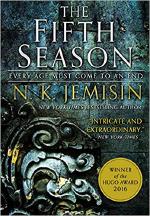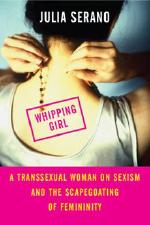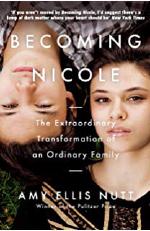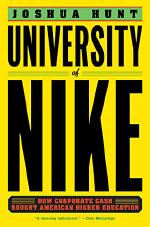What I'm Reading: July 2019
posted | about 6 minutes to read
tags: what i'm reading
It’s been a few months, time for some more riveting book discussion! Here’s the stuff that I’ve read recently that really stood out to me.
The Broken Earth trilogy
 This is, without exaggeration, the single best fantasy/SF series I have read in the last three years, possibly longer. N. K. Jemisin absolutely deserves the Hugo and Nebula awards that she won with this writing. The characterization and worldbuilding are so vivid - I was immediately drawn into this world of periodic disasters and earth magic - and there were a number of twists I didn’t see coming at all (the one that really stood out to me came near the end of the first book, but there are plenty more - even the unique second-person perspective has an excellent revealed explanation). The series is excellently paced and plotted, and I never got bored. I’d unreservedly recommend picking these up - they’re going to be well worth coming back to for rereads. I’m beyond excited to read more of her work.
This is, without exaggeration, the single best fantasy/SF series I have read in the last three years, possibly longer. N. K. Jemisin absolutely deserves the Hugo and Nebula awards that she won with this writing. The characterization and worldbuilding are so vivid - I was immediately drawn into this world of periodic disasters and earth magic - and there were a number of twists I didn’t see coming at all (the one that really stood out to me came near the end of the first book, but there are plenty more - even the unique second-person perspective has an excellent revealed explanation). The series is excellently paced and plotted, and I never got bored. I’d unreservedly recommend picking these up - they’re going to be well worth coming back to for rereads. I’m beyond excited to read more of her work.
Whipping Girl
 I had heard from a lot of folks that Whipping Girl was the cornerstone of trans feminist theory, so I felt like I really needed to engage with it at some point - it just took me a really long time to get around to it. I’m truly glad I did, though. While I disagree with some of author Julia Serano’s points…
I had heard from a lot of folks that Whipping Girl was the cornerstone of trans feminist theory, so I felt like I really needed to engage with it at some point - it just took me a really long time to get around to it. I’m truly glad I did, though. While I disagree with some of author Julia Serano’s points…
Actually, this is going to get its own paragraph. The part that really stuck out to me was near the end of the book, where she asserted that including all gender-variant people in one “big tent” movement has led to “gender anarchy” and people “co-opting identities” or “appropriating language” of other subgroups. I absolutely haven’t personally seen any of these things happening, at least certainly not in the communities that I’m part of. Similarly, she claims that “in queer/trans spaces […] there are very few trans women”, which definitely does not match my experience. In the groups and spaces that I’ve been part of, I’ve always felt included and welcomed as a trans woman. I don’t want to say that her take here is invalid, but it is absolutely not universal, and I disagree that it’s necessary to have a bunch of clearly defined subgroups within the transgender movement to more effectively work towards progress. That said, I personally am not calling for a deconstruction of the gender binary; as a binary trans woman, that part of my identity is important to me, and I actually will touch on this literally next paragraph when I get a little bit deeper into some of the more theory-driven stuff.
By and large, though, this one really spoke to me - affirming some of my own personal experiences, and laying out a compelling case for the concept of “oppositional sexism” and how it applies to transmisogyny. Also, Serano’s “intrinsic inclinations” model is a lot more compelling than other theorists who claim that gender is exclusively a social construct - I had heard that line of argument a number of times before, and it never resonated with me. One of the things that Serano discusses is how non-gender-conforming behavior often shows up in children before they’re completely socialized and continues into adulthood in spite of societal pressures, and that this implies gender expression has a deeper level than just societal norms. This, to me, is a much more elegant explanation - and it also echoes my personal experiences. After I came to terms with being transgender, it was very clear to me that I identified as a woman. There is something, to me, that is deeper than just the performative aspects of gender; something within me that is saying “yes, I am a woman.” It’s been there for a long time now, and coming to terms with it wasn’t just putting on a presentation for society, it was getting to be who I am.
Now, it’s worth noting that neither Serano nor I is arguing that an exclusively binary view of gender is accurate - nonbinary and genderqueer folks are absolutely valid in their identity and expression, and I certainly do not mean to sound like I’m being exclusionary here. She envisions the gender spectrum as a bimodal - not exclusively binary - distribution, and I would agree with that portrayal in my personal experience.
Gosh, that got a bit long. The book’s chock full of good theory stuff like this, and it’s really good to get to unpack it all and actually think about what it means to me personally. I would definitely say that there’s a reason this is such a seminal text in the field of gender and trans feminist theory, and it’s well worth the read.
Becoming Nicole
 I definitely spent a lot of time this go round reading a bunch of gender theory and trans people’s stories. Most of this was academic interest; while I have been thinking about gender in a personal sense for a very long time, I had never taken the time to look at any actual literature on the topic, so getting to dig deep into theory now feels a little bit like making up for lost time.
I definitely spent a lot of time this go round reading a bunch of gender theory and trans people’s stories. Most of this was academic interest; while I have been thinking about gender in a personal sense for a very long time, I had never taken the time to look at any actual literature on the topic, so getting to dig deep into theory now feels a little bit like making up for lost time.
That said, this one isn’t a theory book at all - it’s a story of a family with a trans child, how they handled her transition, and the adversity they faced in the process. I wanted to read it in part because it’s a good illustration of how far bigots will go out of their way to harass and intimidate trans people - even kids - but also because it’s a story of overcoming that adversity. It makes me think about the Martin Luther King quote: “The arc of the moral universe is long, but it bends toward justice”. Looking at the way that things are going these days, looking at our current president, sometimes it’s hard for me to see that - but reading stories like this reminds me that yes, love really can win in the long term.
Amy Ellis Nutt did an excellent job of telling this story. The writing really drew me in. Definitely a compelling read.
University of Nike: How Corporate Cash Bought American Higher Education
 This book was one I had been meaning to pick up for a while, and I finally read it back in April. The premise - how Nike had essentially taken over the University of Oregon - really intrigued me, and I was very interested in learning more. I wasn’t disappointed; not only did I get an interesting deep dive into that topic, the author, Joshua Hunt, also discussed the impact that corporate money has on higher education and issues that it could lead to if not addressed. I’m glad I read it, and would definitely recommend it. If you want a preview of what you’d be getting, check out this great set of excerpts, published by Pacific Standard.
This book was one I had been meaning to pick up for a while, and I finally read it back in April. The premise - how Nike had essentially taken over the University of Oregon - really intrigued me, and I was very interested in learning more. I wasn’t disappointed; not only did I get an interesting deep dive into that topic, the author, Joshua Hunt, also discussed the impact that corporate money has on higher education and issues that it could lead to if not addressed. I’m glad I read it, and would definitely recommend it. If you want a preview of what you’d be getting, check out this great set of excerpts, published by Pacific Standard.